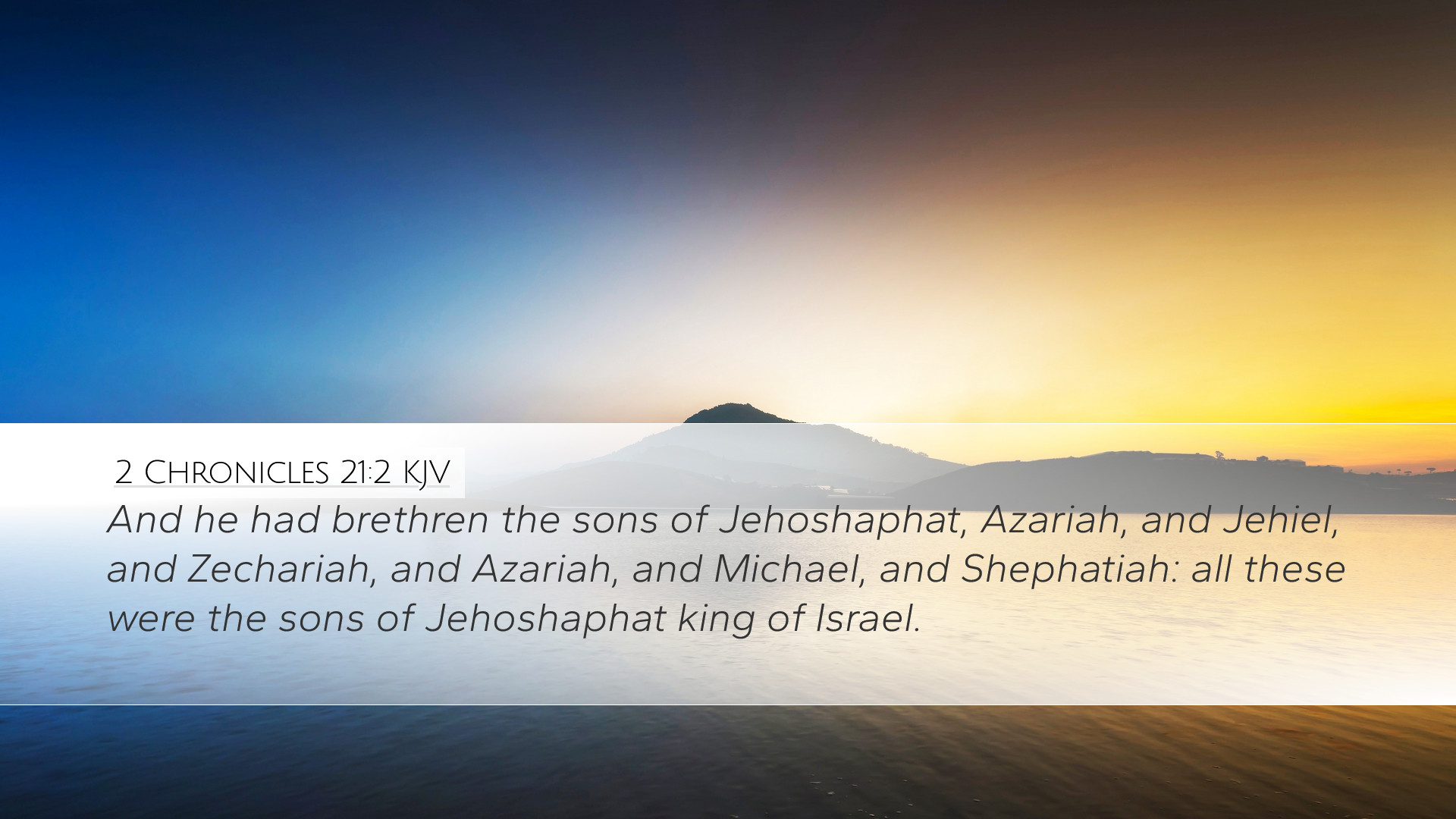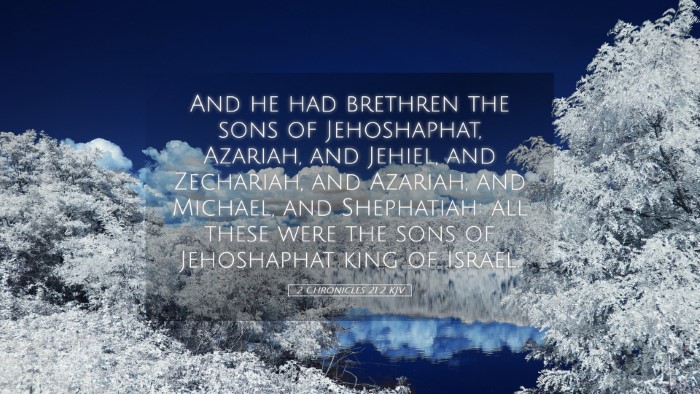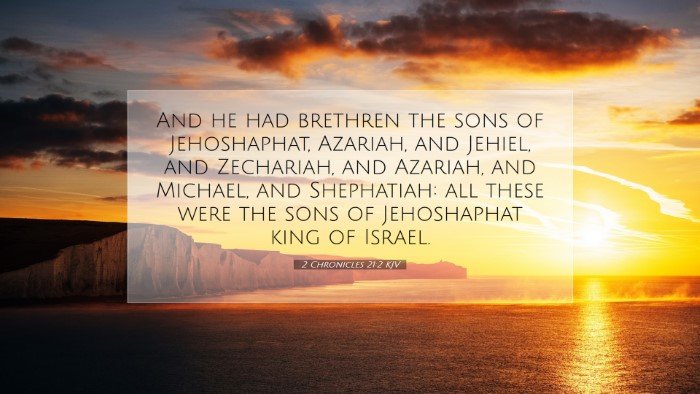Commentary on 2 Chronicles 21:2
Verse: "And he had brothers, the sons of Jehoshaphat: Azariah, Jehiel, Zechariah, Azariah, Michael, and Shephatiah; all these were the sons of Jehoshaphat king of Israel."
Introduction
This verse introduces the lineage of Jehoshaphat, stressing the significance of the royal family of Judah. It serves as a foundation for the narrative of Jehoram, Jehoshaphat's son, whose reign is characterized by a series of critical moral and spiritual failures. The passage highlights the familial connections that shape the future kingship and the spiritual legacy passed down through generations.
Context and Background
The context of this verse occurs after Jehoshaphat’s reign, a time noted for its efforts toward national unity and reforms in worship. Jehoshaphat’s achievements are crucial for understanding the atmosphere in which his son, Jehoram, ascends to power. Jehoshaphat had sought to lead the people back to Yahweh. In stark contrast, Jehoram's reign would spiral toward idolatry, showcasing a dual narrative of fidelity versus apostasy.
Detailed Examination of the Verse
-
The Significance of the Brothers:
The mention of Jehoshaphat's sons signifies not merely progeny but an inheritance of legacy and responsibility. Matthew Henry emphasizes that these brothers had prominent roles within the kingdom, likely indicating positions of authority or influence before Jehoram's ascendance."
-
Identity and Accomplishments of Jehoshaphat's Sons:
Albert Barnes notes that the names listed might reflect their attributes or roles in the temple service, suggesting a structured hierarchy in both royal and religious life. This legacy is significant as it contrasts sharply with Jehoram's subsequent actions that ignored these established roles.
-
Jehoram's Position:
Adam Clarke remarks that while Jehoram inherits a name associated with righteousness, his actions will lead the kingdom into darkness. This stark divergence from his father's legacy becomes central to understanding the spiritual decline of Judah.
Theological Implications
The implications of this verse extend into broader theological themes regarding leadership and heritage. The verse serves as a reminder that the character of leadership profoundly impacts the spiritual health of the nation. Jehoshaphat's devotion to Yahweh does not assure that his descendants will uphold the same values. This disjunction fosters discussions about personal faith versus inherited faith within communities.
Leadership and Legacy
This passage invites reflection among pastors and theologians on the nuances of leadership. The tension between the righteous leader (Jehoshaphat) and his wayward son (Jehoram) provokes important questions about the nature of influence in spiritual matters.
- Authority: The verse illustrates that authority can be inherited, yet personal integrity is vital. Authority does not equate to righteousness; thus, leaders must be vigilant about their spiritual inclinations.
- Impact of Family: Family dynamics profoundly affect spiritual trajectories. The family of a leader can either uplift or undermine a community's spirituality. This reality warns contemporary leaders about the spirituality of their households.
Lessons for Modern Readers
The lessons extracted from 2 Chronicles 21:2 are timeless and applicable for today’s pastors, students, and scholars. The significance of wise leadership, the perils of negligence toward spiritual values, and the importance of establishing a strong, vibrant faith within families serve as guiding principles.
- Maintaining Spiritual Vigilance: Followers of Christ are called to remain vigilant in their faith life and ensure their actions reflect the tenets of their beliefs.
- Mentorship and Guidance: Older generations should actively mentor the younger, fostering a continuity of values. The failures of Jehoram can serve as a cautionary tale for both individuals and communities.
- Choosing Righteousness: Personal choice in faith especially amidst familial or societal expectations matters significantly in cultivating a responsive relationship with God.
Conclusion
In conclusion, 2 Chronicles 21:2 is more than a mere genealogical record; it is a poignant reminder of the ongoing struggle within leadership regarding fidelity to God. The legacy of Jehoshaphat contrasts sharply with Jehoram’s deeds and illustrates the profound impact a leader’s choices can have on a nation. As readers, we are compelled to reflect on our legacies, the impact of our decisions, and our spiritual health, transforming the lessons of Scripture into applicable truths for our lives today.


